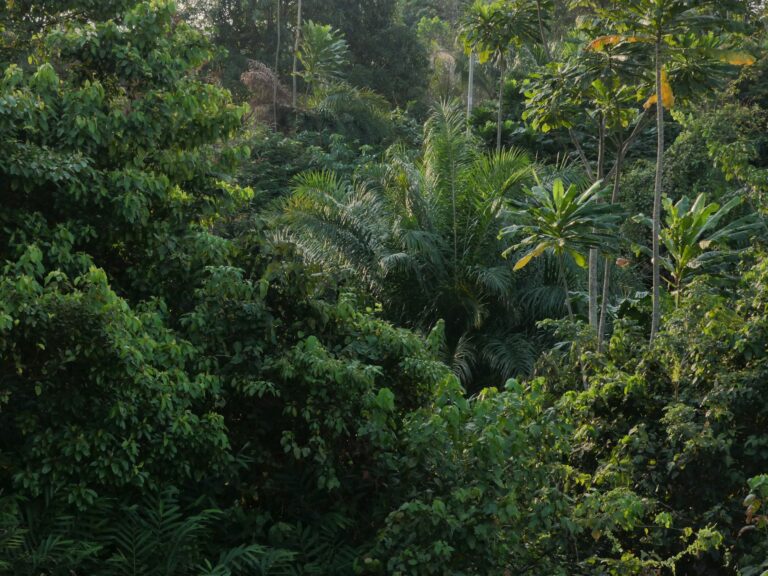A fair deal for the sustainable development of the Congo Basin countries and the protection of the rainforest

Download
The Congo Basin forests, including the world’s second largest rainforest after the Amazon, cover more than 300 million hectares across 11 countries in Central Africa. They represent the world’s largest land-based carbon sink, and provide a unique and vital biodiversity haven.
Development, commercial and demographic pressures have increased considerably in the Congo Basin, particularly since 2010, leading to rising deforestation and degradation in its forests. While recent analysis has suggested that the rate of deforestation has decreased significantly over the past five years, and that it is now less than half, in percentage terms, of that experienced in the Amazon Basin, nearly 10% of the Congo Basin’s forest area was lost between 1990 and 2025. There are also signs that the impacts of climate change are beginning to adversely affect the absorption of carbon dioxide by the Congo Basin forests. Given these threats, this is a critical moment for the forests’ future.
This report highlights the gap between the value of the natural capital of the Congo Basin rainforest and the forestry revenues of the countries that cover it. The authors show how destructive and degrading forestry practices in the countries of the Congo Basin currently produce only a fraction of the value of the available natural capital and call for a genuine ‘fair deal’ that would enable the protection of the Congo Basin and the sustainable development of the countries that cover it.
Recommendations
- Given the importance of the Congo Basin forests, there should be further enhanced efforts by the host nations, strongly supported by the international community, to assess and monitor their extent and rates of deforestation, degradation and restoration, to reduce the current high levels of uncertainty and disagreement around estimates.
- The governments of the Congo Basin nations should develop a collective strategy for the protection and sustainable management of their forests, investing their own resources and seeking investment from their international partners, including donor governments and the private sector.
- To provide the basis for a fair deal, the Congo Basin nations, with support from their international partners, should make the collective case and set out details of the long-term support — including financing from public and private sources — they need in order to implement a collective strategy for the protection and sustainable management of their forests and accelerate their sustainable development.
- The collective strategy for the protection and sustainable management of the Congo Basin forests should include specific timebound goals for what the nations would like to achieve, consistent with their ambitions for accelerating their sustainable development and growth.
- The governments of the Congo Basin nations should provide a breakdown of the investments required to achieve their goals within the specified timeframes and identify what finances they need from domestic public and private sources, and external public and private sources (including donor governments and development banks) for each investment.
- An example breakdown of investments could include: (i) policy development, (ii) ending illegal deforestation (e.g. through monitoring and surveillance; enforcement), and (iii) development of sustainable forest-related incomes and revenues, including carbon markets.
- The international community should provide the long-term financial support from public and private sources to allow the Congo Basin nations to accelerate their sustainable development while protecting their forests.
- The Congo Basin countries should ensure that COMIFAC and the Congo Basin Forest Partnership effectively represent their interests.
- The Congo Basin nations should continue to participate fully in other relevant regional and global fora and organisations concerned with the protection of the world’s rainforests, including the United Nations Framework Convention on Climate Change, the United Nations Convention on Biological Diversity, and the Coalition of Finance Ministers for Climate Action.
- Decisions about investments in the Congo Basin forests should be made in partnership with the host nations, who should be represented, for instance, on the executive board of the Central African Forest Initiative.
- The Congo Basin nations should support and participate in the new Tropical Forest Forever Facility, advising on its development to provide the investments it needs.
- The investor nations of the Tropical Forest Forever Facility should ensure that the Congo Basin nations receive substantial support, including in improving their readiness to apply and receive funds.

